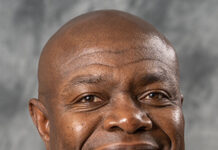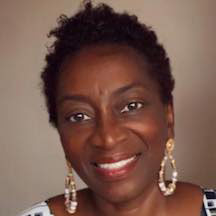 Amiri Baraka, poet, author, social activist, and emeritus professor of Africana studies at Stony Brook University, died on January 9 at Beth Israel Medical Center in Newark, New Jersey. He was 79 years old.
Amiri Baraka, poet, author, social activist, and emeritus professor of Africana studies at Stony Brook University, died on January 9 at Beth Israel Medical Center in Newark, New Jersey. He was 79 years old.
Born Everett Leroy Jones, he attended Rutgers University and Howard University, but dropped out to join the Air Force. After three years he was dishonorably discharged.
Baraka settled in New York and published poetry and edited literary magazines. In 1963, he published the highly acclaimed Blues People: Negro Music in White America, considered the first comprehensive historical study of Black music in the United States. A year later, his play Dutchman opened Off-Broadway and won the Obie Award as the best play of 1964.
Baraka was viewed by many as a radical, referring to Martin Luther King, Jr. at one point as a “brainwashed Negro” and to film director Spike Lee as a “petit bourgeois Negro.” A 2002 poem entitled “Somebody Blew Up America” included the line “Who told 4,000 Israeli workers at the Twin Towers to stay home that day?” At the time Baraka was the poet laureate of the state of New Jersey and the controversy produced calls for his resignation.
But despite his controversial nature, many scholars praised Baraka for his literary skills and political activism on behalf of Black Americans. Pultizer Prize-winning playwright August Wilson once admitted, “From Amiri Bakara, I learned that all art is political.”












This is a disappointing statement because it speaks so little about how we should and must remeber the contributions of the artist/activist/intellectual Amiri Baraka who with Nathan Hare, Sonya Sanchez, Nathan Hare and the students and activists of San Francisco State College did so much to insure that Black Studies was interdisciplinary and holistic in its conceptualization. Without such visionary leadership I wonder how many would be reading this digital journal as employees in higher education. In the paragraph given to so-called statements that misrepresent his steadfast views why not point to his unrelenting critical genius, why not include something about his prolific artistic legacy– not only his extensive body of work but the other works he inspired. And what of his political activism that pushed so many “major mainstream black leaders” to the forefront via the 1972 Black political convention in Gary, or mention the role he and his wife played in developing quality independent. And what about grassroots community organizing as well as Black Power conferences and Pan African conventions, as well as community-based educational programs years before Afrocentricity was coined, or the lives he touched as educator, mentor and wise counsel. What a role model, unbent and unafraid in his creative pursuits and critical assessments of local and world affairs. And couldn’t you have said more about the Black Arts Movement and its historical and cultural significance as artistic and entrepreneurial incubator that really helped so many “keep hope alive.” It is sad that you did not say more rather than take the all too easy route to cut ‘n’ paste spurious, misleading claims.